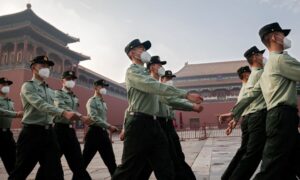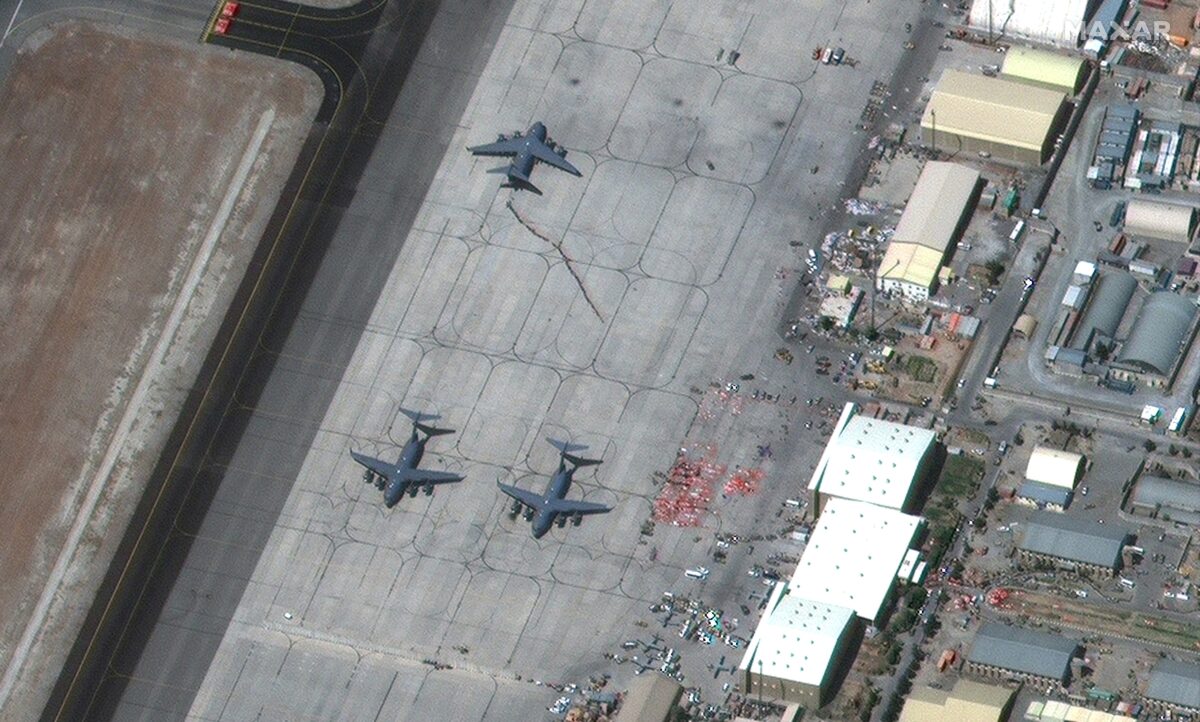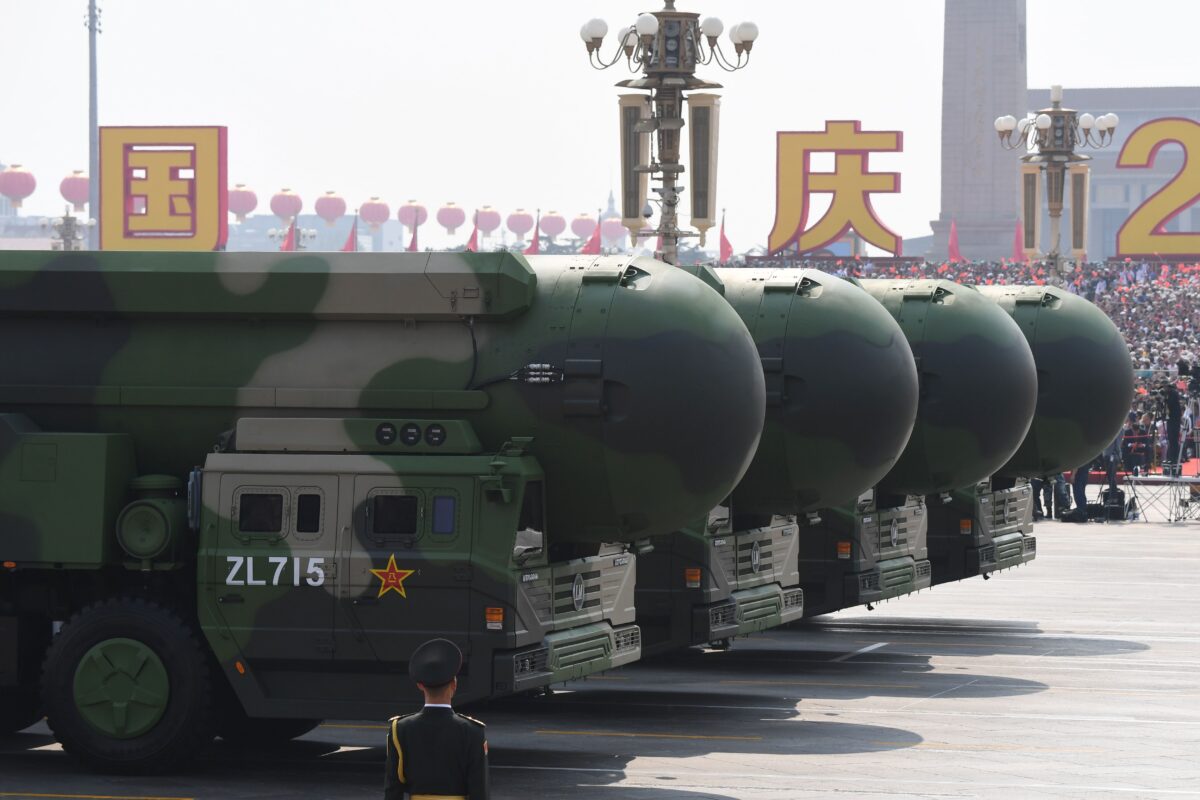The 2023 Annual Intel Assessment Sends the Wrong Signals About China
Commentary The Office of the Director of National Intelligence maintains a public-facing website for the disclosure of various unclassified reports and publications (here). Some of the reports are updated and produced annually, for example, the “2023 Annual Threat Assessment of the U.S. Intelligence Community.” This report generalizes the mission of the Intel Community as “providing the nuanced, independent, and unvarnished intelligence that policymakers, warfighters, and domestic law enforcement personnel need to protect American lives and America’s interests anywhere in the world.” The key word in that mission statement is “nuanced,” as public reports of this nature are written to reflect the political will, intentions, and strategy of the civilian leadership of the federal government, for example, the president of the United States. In short, the IC frequently matches its analyses and recommendations to the desired expectations of the current White House occupants. With respect to reporting on the communist China threat, therein lies the problem because the Biden administration is filled with people who allegedly have conflicts of interest in dealing with China. This would explain the unwillingness to confront the existential threat that China poses to the United States. Is the 2023 threat assessment accurate, or is it a nuanced reflection of wishful thinking concerning the China threat? Let us examine the topic. The Conflicted Biden Administration It is no secret that Joe Biden and his administration have collectively sought to reverse the confrontational China policies of the Trump administration. “Confrontation” on trade policy resulting in the levying of tariffs, increasing Chinese military belligerence and intimidation in East and South Asia, the Chinese sourcing of fentanyl and its precursors, and other issues has been replaced by “competition not confrontation” in all public statements from the White House, U.S. State Department, Department of Defense, and other agencies. The correct interpretation of Biden’s “competition not confrontation” policy is one of weakness and accommodation despite the increasing economic and military threat posed by the Chinese regime. Bipartisan majorities are now focused on that rising threat, with one nexus of scrutiny and action being the new House Select Committee on Strategic Competition between the United States and China. In his initial remarks as the committee was convened, Chairman Rep. Mike Gallagher (R-Wis.) highlighted that the committee’s focus is more serious than the name would imply, as reported by CNBC here: “This is an existential struggle over what life will look like in the 21st century—and the most fundamental freedoms are at stake.” An “existential struggle.” That means dealing with a real threat, and some members of Congress obviously “get it.” But what about the Biden administration? They are stuck in the accommodation and engagement mode, as their gifts to communist China have continued from January 2021 through the present. Some of those latest gifts are real head-scratchers: Bailing out CCP-linked depositors of failed Silicon Valley Bank, as confirmed by Treasury Secretary Janet Yellen here. Confirming Eric Garcetti as the U.S. ambassador to India. Is Garcetti compromised by China, as suggested here? Allowing a Chinese surveillance balloon to traverse the entire continental United States and collect data over sensitive U.S. military installations. The balloon should have been shot down the moment it entered U.S. airspace. Pushing to ban gas stoves in the United States based on a “frivolous study claiming gas stoves were a public health hazard” from the Rocky Mountain Institute, which is a “radical-left environmentalist group with strong ties to the CCP,” as reported here. It is directly in China’s economic interests to push the United States to “go green,” as the Chinese are the world’s largest producers of solar panels, batteries, and electric vehicles. Attacking U.S. coal producers while ignoring the fact that China is producing six times more coal plants than the rest of the world combined, according to the Helsinki-based Centre for Research on Energy and Clean Air. The above are in addition to the truly strategic gifts to China of the catastrophic Afghanistan withdrawal (the Chinese have access to billions of dollars of U.S. military equipment and Afghanistan’s natural resources) and the virtual U.S. withdrawal from the Middle East (Chinese deals with Saudi Arabia, Iran, the UAE, and others could be shocking evidence that the Biden administration is gifting the region to China). A view of people waiting in line to board the C-17 Globemaster III aircraft at the Hamid Karzai International Airport, in Kabul, Afghanistan, on Aug. 27, 2021. (Technologies/Handout via Reuters) The reasons for the kowtowing to China are becoming more apparent with each passing day, as the New York Post reported on March 17 that “on March 1,

Commentary
The Office of the Director of National Intelligence maintains a public-facing website for the disclosure of various unclassified reports and publications (here). Some of the reports are updated and produced annually, for example, the “2023 Annual Threat Assessment of the U.S. Intelligence Community.”
This report generalizes the mission of the Intel Community as “providing the nuanced, independent, and unvarnished intelligence that policymakers, warfighters, and domestic law enforcement personnel need to protect American lives and America’s interests anywhere in the world.”
The key word in that mission statement is “nuanced,” as public reports of this nature are written to reflect the political will, intentions, and strategy of the civilian leadership of the federal government, for example, the president of the United States. In short, the IC frequently matches its analyses and recommendations to the desired expectations of the current White House occupants.
With respect to reporting on the communist China threat, therein lies the problem because the Biden administration is filled with people who allegedly have conflicts of interest in dealing with China. This would explain the unwillingness to confront the existential threat that China poses to the United States.
Is the 2023 threat assessment accurate, or is it a nuanced reflection of wishful thinking concerning the China threat? Let us examine the topic.
The Conflicted Biden Administration
It is no secret that Joe Biden and his administration have collectively sought to reverse the confrontational China policies of the Trump administration. “Confrontation” on trade policy resulting in the levying of tariffs, increasing Chinese military belligerence and intimidation in East and South Asia, the Chinese sourcing of fentanyl and its precursors, and other issues has been replaced by “competition not confrontation” in all public statements from the White House, U.S. State Department, Department of Defense, and other agencies.
The correct interpretation of Biden’s “competition not confrontation” policy is one of weakness and accommodation despite the increasing economic and military threat posed by the Chinese regime. Bipartisan majorities are now focused on that rising threat, with one nexus of scrutiny and action being the new House Select Committee on Strategic Competition between the United States and China.
In his initial remarks as the committee was convened, Chairman Rep. Mike Gallagher (R-Wis.) highlighted that the committee’s focus is more serious than the name would imply, as reported by CNBC here: “This is an existential struggle over what life will look like in the 21st century—and the most fundamental freedoms are at stake.”
An “existential struggle.” That means dealing with a real threat, and some members of Congress obviously “get it.” But what about the Biden administration? They are stuck in the accommodation and engagement mode, as their gifts to communist China have continued from January 2021 through the present. Some of those latest gifts are real head-scratchers:
- Bailing out CCP-linked depositors of failed Silicon Valley Bank, as confirmed by Treasury Secretary Janet Yellen here.
- Confirming Eric Garcetti as the U.S. ambassador to India. Is Garcetti compromised by China, as suggested here?
- Allowing a Chinese surveillance balloon to traverse the entire continental United States and collect data over sensitive U.S. military installations. The balloon should have been shot down the moment it entered U.S. airspace.
- Pushing to ban gas stoves in the United States based on a “frivolous study claiming gas stoves were a public health hazard” from the Rocky Mountain Institute, which is a “radical-left environmentalist group with strong ties to the CCP,” as reported here. It is directly in China’s economic interests to push the United States to “go green,” as the Chinese are the world’s largest producers of solar panels, batteries, and electric vehicles.
- Attacking U.S. coal producers while ignoring the fact that China is producing six times more coal plants than the rest of the world combined, according to the Helsinki-based Centre for Research on Energy and Clean Air.
The above are in addition to the truly strategic gifts to China of the catastrophic Afghanistan withdrawal (the Chinese have access to billions of dollars of U.S. military equipment and Afghanistan’s natural resources) and the virtual U.S. withdrawal from the Middle East (Chinese deals with Saudi Arabia, Iran, the UAE, and others could be shocking evidence that the Biden administration is gifting the region to China).

The reasons for the kowtowing to China are becoming more apparent with each passing day, as the New York Post reported on March 17 that “on March 1, 2017—less than two months after Joe Biden left office as Barack Obama’s vice president—State Energy HK Limited, a firm affiliated with Chinese Communist Party-backed energy company CEFC China Energy, wired $3 million to [a] Biden family associate,” which was later divided among “at least three members of the Biden clan, and two Biden family associates.” That’s influence-peddling by the Chinese communists at the highest levels of the U.S. government.
The Soft Touch in the IC Threat Assessment
The 2023 annual assessment is indeed “nuanced” to reflect the political biases of the Biden administration. First of all, the word “threat” is used only once in the section addressing China: “China will remain the top threat to U.S. technological competitiveness.” That’s it. No threats are associated with China’s modernization of its military, nuclear forces, and space capabilities. Instead, the important phrases in the report relate to “vying for global dominance” and “strategic competition between the United States and its allies, China, and Russia.” Riiiiight.
The document states that “China has the capability to directly attempt to alter the rules-based global order in every realm and across multiple regions, as a near-peer competitor that is increasingly pushing to change global norms and potentially threatening its neighbors.” How is China’s ability to alter the rules-based global order in every realm not an existential threat to the United States and its allies?
Then there is a gratuitous comment about “the accelerating effects of climate change,” which is offered without proof and directly reflects the political priorities of the Biden administration. Including this phrase in a strategic threat assessment is absurd because the premise itself remains much debated. For example, over 1,500 scientists worldwide have signed an online World Climate Declaration that “There is no climate emergency.” If there is no climate emergency, then there is no “strategic threat” to the United States.
Nevertheless, in bull-headedly pressing the Democrats’ green agenda, as reported by The Washington Post, “Biden has appointed Brown University’s Kim Cobb as the first-ever climate scientist on the President’s Intelligence Advisory Board,” which is involved in evaluating all of the intelligence received from the Intel Community.
Never mind the Chinese military’s breakout development and deployment of nuclear-armed intercontinental ballistic missiles that are aimed at challenging the present nuclear balance of power that favors the United States. These are real and physical threats to the United States, not ephemeral and unproven climate change theories! Yet the report’s single vanilla sentence about the threat is this: “China is building hundreds of new ICBM silos.” And the resultant implications and threats to the United States are what exactly? Where’s the “IC’s assessment”?

Words have meaning, and clear thinking is required in describing threats and probabilities if U.S. national security is to be preserved for this and future generations.
In soft and nonconfrontational words, the assessment report refers to China’s ongoing efforts to “pursue global influence.” That’s what every nation does in its own way. China is pursuing world hegemony in every sphere of human endeavor, as Chinese leader Xi Jinping’s grandiose global initiatives clearly lay out for all the world to see (the Global Development, Global Security, and the new Global Civilization Initiative). Commentators worldwide, including at the Gatestone Institute, already believe China is well on the way to “inaugurating a new world order” with “Chinese characteristics.” Is that not a direct threat to the present U.S.-dominated liberal world order?
The report further states that “the PLA [People’s Liberation Army] will continue to pursue the establishment of overseas military installations and access agreements in an attempt to project power and protect China’s interests abroad” without itemizing the stunning successes achieved all over the world in recent years through port access rights obtained via China’s Belt and Road Initiative. It is almost as if there is a communist Chinese strategy to circle the United States with facilities accessible to and operated by the PLA. What a concept! Perhaps the Chinese learned from watching the United States surround the USSR in a similar fashion during the Cold War. Is that not a strategic threat to the United States?
The same soft approach is used in referring to China’s leadership in building new chip factories, in mining and processing strategic materials (so-called rare earth elements), and in battery, pharmaceutical, and solar panel production. Never mind the supply chain chokeholds that China can exert on the United States and its allies at will. Are these not aspects of a serious economic threat posed by the Chinese regime?
Concluding Thoughts
The “2023 Annual Threat Assessment of the U.S. Intelligence Community” is filled with soft, wishful thinking about communist China, reflecting the Biden administration’s desire to “reengage” with China after the Trump years.
In addition to the above points, the report states that, through expanding global intelligence and covert influence operations, “Beijing is intensifying efforts to mold U.S. public discourse—by trying to shape U.S. views, particularly of sensitive or core sovereignty issues.” This isn’t simply about strategic cooperation or some other misguided notion of U.S.-China relations; these are elements of the hybrid war that communist China has been conducting against the United States over at least the last decade.
Yet again, the word “threat” is finessed into “competition” by the IC leadership seeking to reflect the Biden administration’s political priorities and obfuscate the truth for the American people.
Views expressed in this article are the opinions of the author and do not necessarily reflect the views of The Epoch Times.












